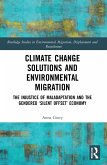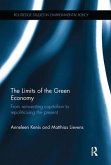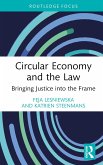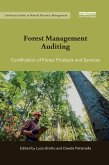Amidst the pressing challenges of global climate change, the last decade has seen a wave of forest carbon projects across the world, designed to conserve and enhance forest carbon stocks in order to reduce carbon emissions from deforestation and offset emissions elsewhere. Exploring a set of new empirical case studies, Carbon Conflicts and Forest Landscapes in Africa examines how these projects are unfolding, their effects, and who is gaining and losing. Situating forest carbon approaches as part of more general moves to address environmental problems by attaching market values to nature and ecosystems, it examines how new projects interact with forest landscapes and their longer histories of intervention. The book asks: what difference does carbon make? What political and ecological dynamics are unleashed by these new commodified, marketized approaches, and how are local forest users experiencing and responding to them?
The book's case studies cover a wide range of African ecologies, project types and national political-economic contexts. By examining these cases in a comparative framework and within an understanding of the national, regional and global institutional arrangements shaping forest carbon commoditisation, the book provides a rich and compelling account of how and why carbon conflicts are emerging, and how they might be avoided in future.
This book will be of interest to students of development studies, environmental sciences, geography, economics, development studies and anthropology, as well as practitioners and policy makers.
The book's case studies cover a wide range of African ecologies, project types and national political-economic contexts. By examining these cases in a comparative framework and within an understanding of the national, regional and global institutional arrangements shaping forest carbon commoditisation, the book provides a rich and compelling account of how and why carbon conflicts are emerging, and how they might be avoided in future.
This book will be of interest to students of development studies, environmental sciences, geography, economics, development studies and anthropology, as well as practitioners and policy makers.
"Carbon forestry is privatizing, commodifying and financializing the world's forests, recasting relations between state and market forest landscapes. This book illuminates the fraught political economy of this transformative moment - through lived experience within place-based histories. As the first comparative political ecology of carbon forestry politics, this book is essential reading for scholars and practitioners wishing to transform carbon forestry for the better."-Jesse Ribot, University of Illinois, USA
"This book not only synthesizes what we know about carbon forestry and illustrate how it has unfolded in Africa, it also critically reflects on the material, social and cultural life of carbon and how the latter features amidst dynamic ecologies and the development needs and aspirations of states and people. This is a brilliant book; a must read for scholars and activists interested in the commodification of environmental services and their likely consequences."-Esteve Corbera, Universitat Autònoma de Barcelona, Spain
"This book will help readers better understand why it is important to incorporate livelihood considerations and a landscape approach into the design and implementation of forest carbon projects."-Gretchen Walters, International Union for the Conservation of Nature (IUCN), Switzerland
"This piece of work is a critical revision of carbon projects as economic interventions that provide new value to ecosystems suffering from unsustainable use. Due to their economic relevance they have even become an interesting object for brokers, traders, and consultants and often developed a certain potential to create social distortions on the ground." - Challenges in Sustainability, Pierre L. Ibisch, Eberswalde University, for Sustainable Development, Germany
"This book not only synthesizes what we know about carbon forestry and illustrate how it has unfolded in Africa, it also critically reflects on the material, social and cultural life of carbon and how the latter features amidst dynamic ecologies and the development needs and aspirations of states and people. This is a brilliant book; a must read for scholars and activists interested in the commodification of environmental services and their likely consequences."-Esteve Corbera, Universitat Autònoma de Barcelona, Spain
"This book will help readers better understand why it is important to incorporate livelihood considerations and a landscape approach into the design and implementation of forest carbon projects."-Gretchen Walters, International Union for the Conservation of Nature (IUCN), Switzerland
"This piece of work is a critical revision of carbon projects as economic interventions that provide new value to ecosystems suffering from unsustainable use. Due to their economic relevance they have even become an interesting object for brokers, traders, and consultants and often developed a certain potential to create social distortions on the ground." - Challenges in Sustainability, Pierre L. Ibisch, Eberswalde University, for Sustainable Development, Germany








